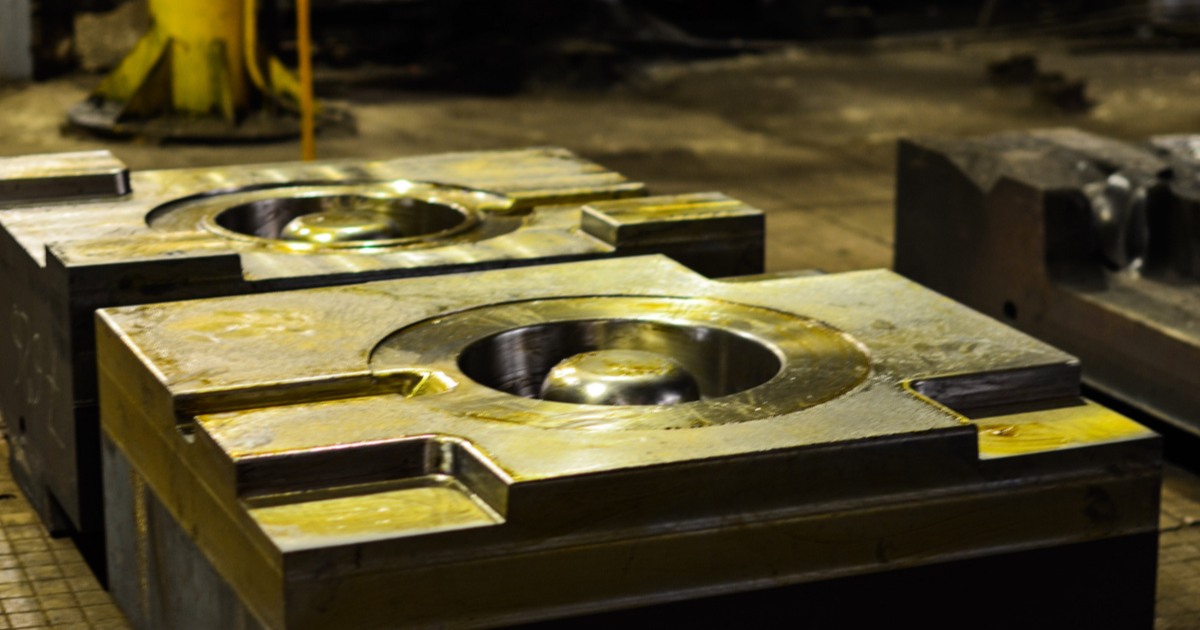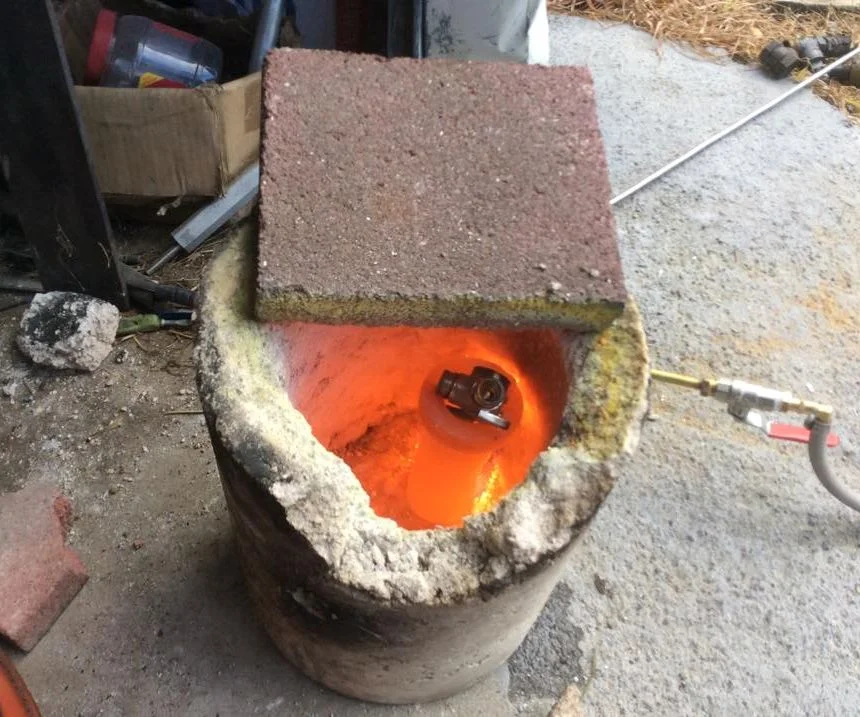Why Aluminum Metal Casting remains a preferred method for precision components
Wiki Article
Finest Practices for Upkeep and Applications in the Aluminum Factory Sector: An In-depth Summary
Maintaining devices in the light weight aluminum shop sector is vital for operational success. Routine evaluations and predictive upkeep can considerably decrease downtime and improve safety. Advanced technologies, such as IoT and data analytics, play a crucial role in this process. Recognizing the full extent of best practices requires a more detailed examination of specific methods and their influences on efficiency. What are the crucial components that add to a trustworthy maintenance structure?Importance of Routine Upkeep in Light Weight Aluminum Foundries
Routine upkeep plays a necessary function in the reliable procedure of light weight aluminum factories. By systematically examining and servicing equipment, factories assure peak performance and longevity of equipment. Regular upkeep tasks, such as lubrication, cleansing, and element replacement, assistance avoid unexpected break downs that can cause expensive downtime.Moreover, regular checks improve office security by determining possible hazards before they intensify right into severe issues. Tools that is well-maintained operates much more efficiently, resulting in enhanced item high quality and decreased waste. Additionally, adherence to a structured maintenance routine can sustain compliance with sector policies, therefore promoting an online reputation for reliability and high quality within the marketplace.
Implementing Predictive Upkeep Approaches
Predictive maintenance methods take the concepts of routine upkeep a step further by leveraging data analytics and progressed tracking modern technologies. In aluminum foundries, these approaches enable operators to anticipate devices failures before they happen, thus lowering unexpected downtimes and optimizing operational efficiency. By using sensors and IoT tools, real-time data can be collected on maker efficiency, enabling the recognition of prospective problems via anticipating analytics.Optimizing Melting and Pouring Procedures
Effective melting and pouring processes are essential for optimizing efficiency and ensuring the top quality of aluminum spreadings. To boost these processes, factories must concentrate on exact temperature control throughout melting, as this straight affects the metallurgical properties of the alloy. Making use of innovative melting technologies, such as induction and resistance melting, can boost energy performance and decrease cycle times.Implementing automated putting systems decreases human error and preserves uniformity in the pouring procedure. Proper mold prep work, including appropriate preheating, is important to prevent thermal shock and boost mold and mildew longevity.

Enhancing Security Procedures in Foundry Workflow
Prioritizing safety in aluminum foundry procedures is crucial for safeguarding employees and assuring a productive environment. Efficient safety procedures include normal training sessions that emphasize the importance of personal safety equipment (PPE), such as goggles, safety helmets, and gloves. Furthermore, the establishment of clear emergency treatments is important in handling prospective mishaps.Regular examinations of devices and equipment help identify hazards prior to they rise into serious problems. Carrying out a durable reporting system encourages workers to communicate security problems without fear of repercussion. Fostering a society of safety assurances that every staff member understands their role in preserving a safe and secure workplace.
On top of that, ensuring proper ventilation and surveillance air top quality can alleviate direct exposure to hazardous fumes and dust. By enhancing these practices, light weight aluminum shops can significantly decrease the threat of mishaps and produce a setting where staff members feel valued and safe, eventually boosting overall functional efficiency.
Leveraging Innovation for Improved Performance
Making use of innovative modern technology has actually come to be increasingly crucial for aluminum factories intending to enhance functional effectiveness. Automation and robotics play an important duty in streamlining production procedures, minimizing labor expenses, and decreasing human mistake. Implementing real-time surveillance systems enables the continuous analysis of tools performance, enabling aggressive upkeep and lowering downtime.
In addition, the integration of information analytics supplies beneficial understandings into functional process, helping with far better decision-making and resource allocation. Anticipating analytics can identify possible failings prior to they take place, further maximizing maintenance schedules.
Additionally, taking on sophisticated melting and casting modern technologies enhances power effectiveness and product return, which are essential for sustainability in the sector. By embracing these technical innovations, light weight aluminum foundries can not only look at this site boost efficiency yet also maintain an one-upmanship in an increasingly demanding market (aluminum casting company). Eventually, leveraging technology is essential in driving innovation and enhancing total functional effectiveness within the market

Often Asked Inquiries
What Are Usual Signs of Tools Put On in Light Weight Aluminum Foundries?
Typical indicators of equipment wear in light weight aluminum foundries consist of unusual sounds, reduced performance, boosted resonance, overheating components, leakages, and visible corrosion. These indications often signify the need for maintenance or possible substitute to avoid costly downtime.Just How Can I Train Team for Effective Upkeep Practices?
To train personnel for effective upkeep practices, one can execute hands-on workshops, develop thorough guidebooks, motivate mentorship programs, and perform normal analyses to examine skills and expertise, guaranteeing all employees recognize maintenance protocols completely.What Are the Environmental Laws for Light Weight Aluminum Foundries?
Light weight aluminum foundries undergo different environmental guidelines, including exhausts control, waste management, and resource conservation. Compliance warranties marginal ecological effect, promoting sustainability while sticking to regional, national, and global environmental criteria and policies.Exactly How Do Shops Take Care Of Waste and Recycling of Aluminum?
Factories take care of waste and recycling by carrying out systems for gathering scrap aluminum, using innovative splitting up innovations, and collaborating with reusing centers to ensure reliable recovery processes, therefore reducing ecological effect and promoting sustainability within the industry.What Are the Expenses Related To Carrying Out Advanced Technologies?
Implementing innovative innovations in factories incurs considerable prices, including preliminary investment, training, and maintenance costs. Nevertheless, the long-term advantages, such as boosted efficiency official site and decreased waste, frequently warrant these expenditures, causing boosted productivity.Regular upkeep plays an important role in the efficient procedure of aluminum foundries. In aluminum foundries, these methods enable drivers to prepare for tools failings before they happen, thus reducing unintended downtimes and optimizing operational efficiency. Making use of sophisticated technology has actually come to be significantly important for light weight aluminum shops intending to boost functional efficiency. Usual indicators of devices wear in aluminum factories consist of unusual sounds, decreased performance, raised vibration, overheating components, leakages, and noticeable deterioration. Implementing sophisticated modern technologies in factories sustains substantial costs, including initial investment, training, and maintenance expenditures.
Report this wiki page